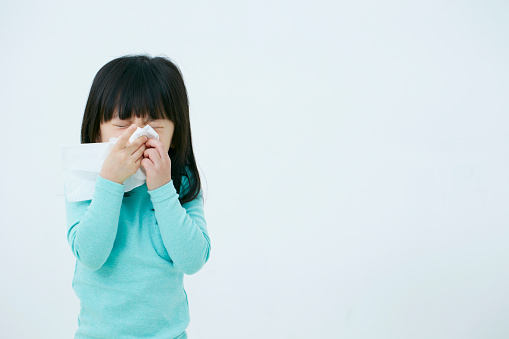During the school year, you might find that your child keeps coming home with a runny nose, cough or the newest virus that’s been circulating. This can be especially stressful if your child has just started preschool or daycare. Dr. Arthur Lavin, a pediatrician at Akron Children’s, explains why this is.

During the pandemic, your child may have not had as much exposure to others, and as a result, their germs, which plays part of the role as to why your child may be sick more often when starting school. Now that your child is in school and around others in close quarters, viruses are able to easily spread.
“Viruses work by chain reaction, so if you have a cold and you’re not around anyone, you’re not going to be able to give it to anybody,” explained Dr. Lavin. “But if you have a cold and you’re in a room with other people, one person can give it to two people and they can give it to four people. This chain reaction spark doesn’t matter what age you are. It happens when you get more than six people in a room and most kids, when they go to preschool, are in a room with more than six kids. It can really happen at any age, infants, preschool, toddlers, and it’s very common.”
It may be common, but that doesn’t mean it’s not frustrating for both you and your child. Unfortunately, Dr. Lavin says, there’s not much you can do to prevent your child from catching something at daycare or preschool.
“The only way you can prevent getting a virus or other illness is not to be near someone else with a virus, and that’s very difficult if you’re going to attend any kind of school,” he said.
Handwashing can help slow the spread of certain viruses like the stomach flu. But, for viruses that spread through the air, like colds or flus, it can be very difficult to slow the spread. For viruses that spread via touch, washing your and your child’s hands after using the bathroom and before eating is important.
Things like vitamins or zinc don’t really do much to protect your child from getting sick, said Dr. Lavin.
“These things aren’t proven to be helpful. If we had something that stopped colds from spreading, we would know and colds wouldn’t be spreading,” he said. “What’s important to keep in mind about colds and other childhood viruses and infections is that they don’t threaten your child’s health. It sounds like a funny thing to say about something that makes you sick, but most viruses and infections leave your child unharmed, which is good news because you really can’t stop these viruses from flowing.”
Dr. Lavin notes that it’s important to distinguish between colds and COVID. While they may seem uncomfortable, colds aren’t a danger to your child’s health.
“If a parent is unsure their if their child has COVID or a cold, they should get them tested, but if it turns out that it’s a cold, the good news is that’s a pretty harmless illness,” he said.
If your child is sick and you’re concerned, contact their pediatrician for advice. If you’re worried about a fever, here’s what you need to know about treating them.








